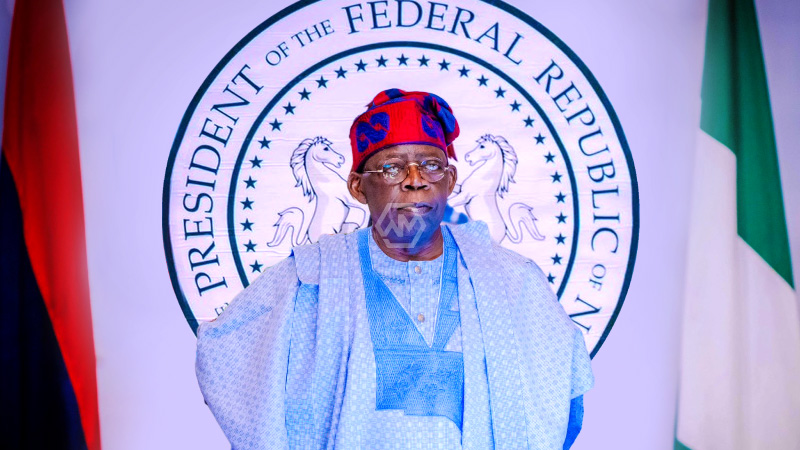- The seven-man board gave a consistent judgment, with no disagreeing or minority choice.
- This choice was an insistence on the previous choice taken by the Official Political Decision Petitions Court (PEPC).
- The proposed spending plan figure denotes a significant 19.15 percent increment from the N21.83 trillion 2023 consumption gauge.
- Designated likewise, is an expansion pace of 21% for the 2024 financial year as against 17.10 percent for 2023.
On Thursday last week, the High Court board, driven by Equity Inyang Okoro, confirmed the appointment of Bola Tinubu as the Leader of the Government Republic of Nigeria.
Throughout the long term, everything about’s yearly financial plan has been named to give the feeling that its execution will lead the country to a Monetary Eldorado.
Bola Tinubu Elected as President
That five-part Court likewise gave a consistent choice, no disagreeing or minority choice. At the end of the day, 12 prominent adjudicators have given their sign of approval for the statement by INEC that the February 25 official political race was won by Tinubu. It doesn’t imply that the political race was faultless. It just implies that the political race was considerably free and fair.
In the choice of the High Court, there are three things that they addressed that are significant. One is that INEC neglected to communicate the aftereffects of the political decision to the IREV entrance. A few legislators and investigators felt that that disappointment might have impacted the validity of the votes.
In any case, the High Court in its judgment, said that the non-transmission of the outcomes to the IREV can’t negate the outcomes because the IREV isn’t a resemblance community. They said that what is significant is the holiness of the outcomes from the surveying units. They said that the appellants didn’t show that the non-transmission of the outcomes to the IREV had impacted the consequence of the political decision.
Second, they managed the issue of competitors scoring or neglecting to score 25% in the Government Capital Domain (FCT). Tinubu didn’t score 25% of the votes in the FCT yet did as such in somewhere around 2/3 of the states as expected by the Constitution. In any case, Tinubu’s political rivals felt that he was not truly chosen since he neglected to score 25% in the FCT.
Nigeria’s 2023 Annual Budget
‘Spending plan of Trust and Monetary Change’; ‘Spending plan of Consideration and Sped Financial Development‘; ‘Financial plan of Changes and Feasible Monetary Turn of events’; and ‘Spending plan of Monetary Combination and Progress’ are some of such lovely however misleading financial plan titles.
Under every one of these rubrics, the public authority of the day proceeds to propose exceptionally grand arrangements and projects, however generally end up predominantly under-conveying. What’s more, for this reason on each marker, past financial plans have had fantastic disappointments — neither income targets are at any point accomplished nor most (planned) projects executed.
It is against this background that the N26.01 trillion 2024 proposed National Government financial plan that was as of late endorsed by the Bureaucratic Leader Board (FEC) ought to be taken with mindful expectation and positive thinking.
Very much like others before it, the 2024 proposed financial plan vows to zero in on framework improvement, human resources venture, and monetary enhancement. Be that as it may, before examining the financial plan subtleties, taking into account its fundamental assumptions is appropriate.
In particular, it is accepted that in 2024, the cost of raw petroleum will average US$73.96 per barrel, an increment from the US$70 per barrel expected in the 2023 spending plan. The 2024 spending plan is additionally predicated on an expected ascent in oil creation to 1.78 million barrels each day, up from 1.69 million barrels each day in 2023. A conversion scale of N700/USS$ is likewise expected for the 2024 financial plan; a significant leap from N435.57/US$ expected in the 2023 financial plan.



